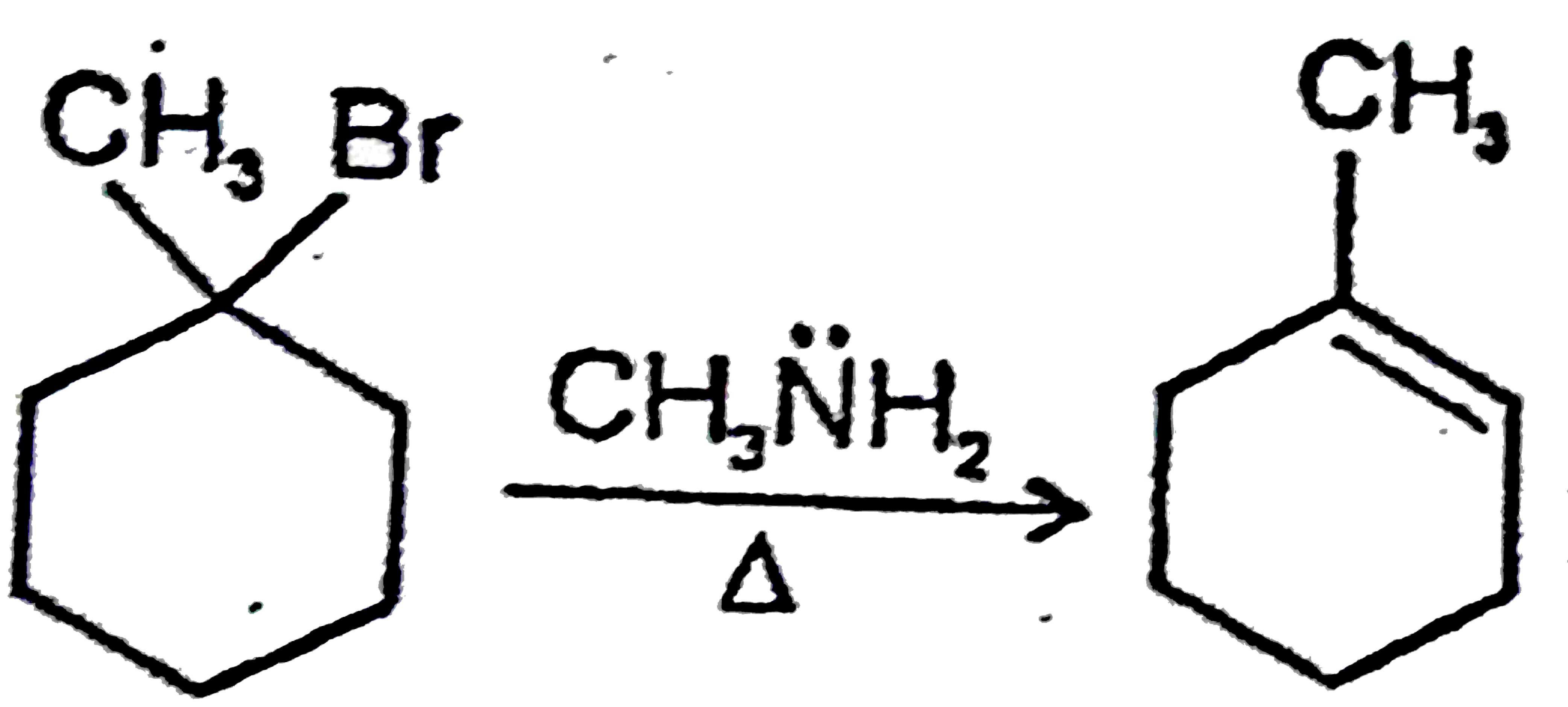Complete Solutions to Exercise-1 Part-1 of chapter ORGANIC REACTION MECHANISMS-IV of Class 11 book with complete answers and questions
| Class 11 | CHEMISTRY |
| Chapter | ORGANIC REACTION MECHANISMS-IV |
| RESONANCE NEW | Exercise-1 Part-1 |
| Number Of Questions | 13 |
| Academic Year | 2023-24 |
Why dehydration of alcohol takes place in acidic medium generally but not in basic medium
View Solution`1^(ul@)` alcohols are poor starting material for synthesis of 1-Alkene. Explain ?
View SolutionPredict the major product of the acid catalysed dehydration of the following alcohols :
(a)`(CH_3)_2C(OH)CH_2CH_3` , (b)`CH_3CH_2CH_2CH(OH)CH_3`
(c )`(CH_3)_2C(OH)CH(CH_3)_2` , (iv)`(CH_3)_3C CH_2OH`
View SolutionWhen 1-Bromo-1-methylcyclohexane is heated in ethanol for an extended period of time, three products result : one ether and two alkenes . Predict the products of this reaction, and propose mechanism for their formation.Also, mention the major elimination product.
View SolutionAn alkyl halide of formula `C_6 H_13 Br` on treatment with potassium t-butoxide gives two isomeric alkenes dimethy butane. Isomeric alkene are :
View Solution formed product 'X' is used as:
formed product 'X' is used as:
View SolutionBromocyclodecane on heating with ethanolic KOH, produces two alkenes. Write the two products also mentions the major one.
View SolutionWhich alkyl chloride would yield following pure alkene on reaction with alcoholic KOH ?
`(i)CH_3-oversetoverset(CH_3)(|)C=CH_2 " " (ii)CH_3-CH_2-CH_2-CH=CH_2 " " (iii)CH_3-CH_2-undersetunderset(CH_3)(|)C=CH_3`
View SolutionPredict all the alkenes that would be formed by dehydrohalogenation of the following halides with sodium ethoxide in ethanol and identify the major alkene:
(i) 1-Bromo-1-methylcyclohexane , (ii) 2-Chloro-2-methylbutane
(iii) 2,2,3-Trimethyl-3-bromopentane
View SolutionIf
 , Then what wil be the major product of the following reaction
, Then what wil be the major product of the following reaction
 major product
major product
View SolutionWhat are the essential conditions for any reaction to show E1cB mechanism ?
View SolutionIf ethanol containing EtOD is used as solvent , then deuterium exchange take place in E1cB mechanism . Why ?
View SolutionIf the mechanism is E1cB then the possible products will be :

View Solution
Exercise-1 Part-1 questions and complete solutions for chapter ORGANIC REACTION MECHANISMS-IV of RESONANCE ENGLISH of Class 11